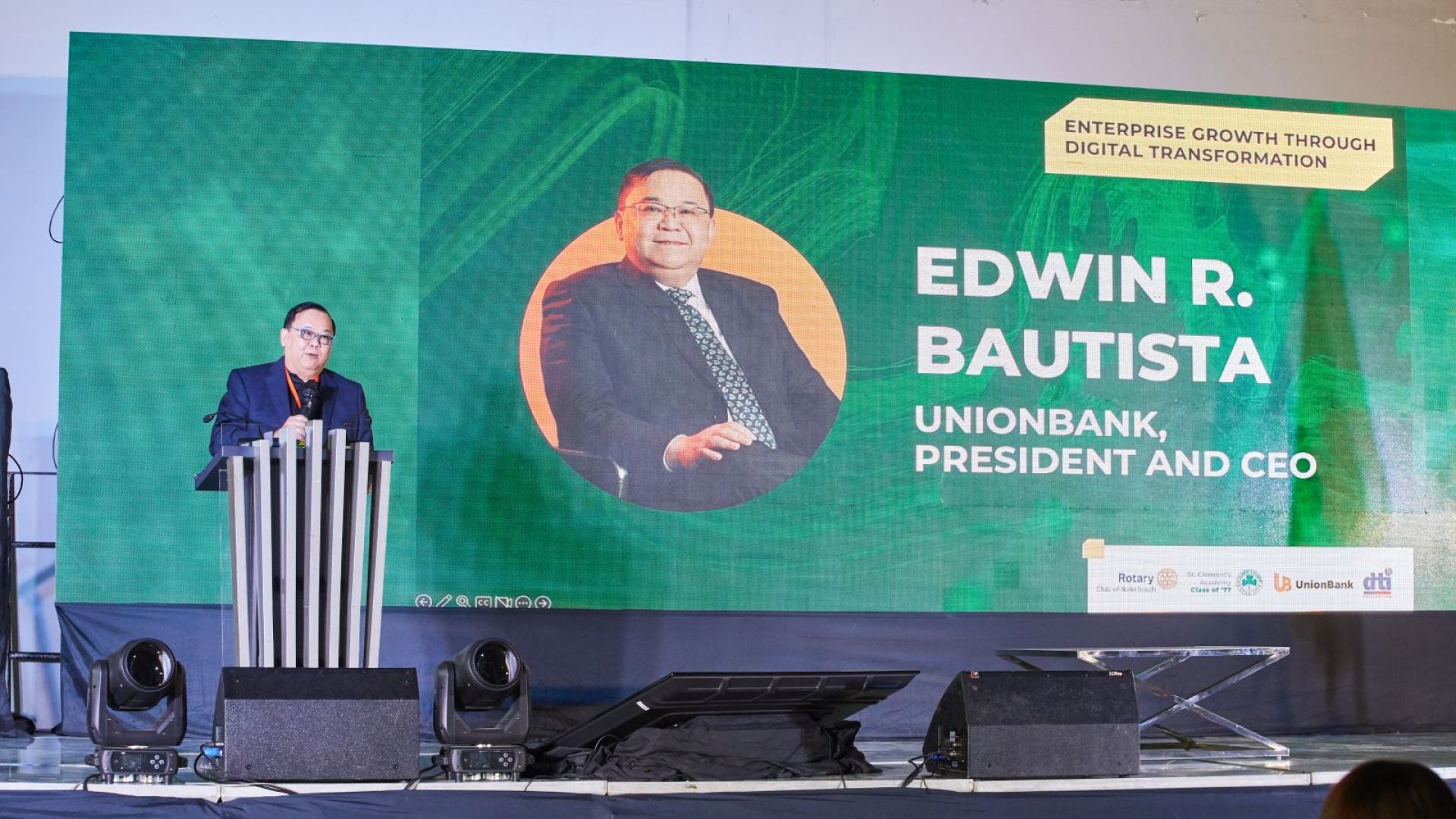Union Bank of the Philippines (UnionBank) and its venture studio UBX, the leading open finance platform in the Philippines, are doubling down on their commitments to empowering more micro, small and medium enterprises (SMEs) in the country.
During the recent SME Innovation Festival held in Iloilo City, UnionBank President and CEO Edwin R. Bautista highlighted the two companies’ strategies and initiatives to democratize SMEs’ access to finance by using new technologies.
Access to business capital is necessary to strengthen business operations of growing businesses and enable them to further expand their enterprises. MSMEs account for 99.5 percent of the total establishments in the Philippines and employ 62.8 percent of the entire labor force. Access to credit and financial services for MSMEs remains a challenge.
In fact, latest data from the Bangko Sentral ng Pilipinas (BSP) showed that loans disbursed to MSMEs only reached P454.31 billion from January to September 2022, representing only 4.91 percent in compliance ratio, which is still below the 10-percent threshold under the Republic Act No. 6977 or the Magna Carta for MSMEs.
“The challenge, really, for MSMEs is how to get access to technology. The idea is how to scale the type of technology to the type of business. Although you start off as a small business, you’ll progress and grow, and with that your technology needs growth as well.” Bautista said.
SeekCap, an online lending marketplace built by UBX, is one such example of how UnionBank caters to MSMEs nationwide. Disrupting the traditional lending model, SeekCap leverages its partners’ wide user base to offer loans to businesses.
At present, it has around 15 partners composed of banks and other financial institutions with a diverse array of loans available for enterprises of all shapes and sizes.
“If you are a business which is still new or you have no credit history and the usual standards and requirements are difficult for you to meet, with SeekCap there will always be a lender for you. As their business grows, they will be given the option to shift to UnionBank itself as a lender who can cater their needs at their certain level,” Bautista explained.
Aside from SeekCap, UnionBank also offers the MSME Banking App, which provides businesses with a wide range of digital solutions that allows entrepreneurs to transact and manage their accounts wherever they may be. The app provides enterprises with the right technology for their particular needs such as paying bills, transferring funds, and even setting up simple to complex business approvals, among others.
Bautista also emphasized on the importance of payments in the development of smart cities, which is an emerging trend in urban planning. According to Bautista, a common payment instrument is key to tying everything together–from transportation to government services to private establishments.
“Smart cities such as Singapore and Dubai are too complicated. There is a more practical solution: you start with collection, start with digitizing information, backed up by the government, which can be accessed by the residents. We are at the center of the development of this area, because it’s something that we can continue to do because payment is an essential ingredient in the development of a smart city,” he said.
UnionBank kicked off its digital transformation journey in 2016, when interbank fund transfers were still unheard of. From no recorded digital transactions at all to millions in transaction volume at present, UnionBank has exceeded its own expectations and is truly on its way to achieving financial inclusion.
“It was a difficult journey but we were among the first and we benefited from that advantage. Even at the outset, the market already gave us awards related to digital transformation. That was our problem: we were not yet finished with part one but we were already awarded, not just in banking but in the corporate level. What do we do next?” Bautista shared.
The Philippine government itself has declared a policy of pursuing digital transformation for the country as a whole. According to the BSP, the country aims to grow financial inclusion numbers to at least 70 percent of Filipino adults and targets to migrate 50 percent of the total volume of retail payments to digital by this year.
“We must proceed with data science and AI. If we don’t do anything today, we will be left behind in Asia. But if we do something today, we could probably emerge as a leader, not a follower.” Bautista said.



